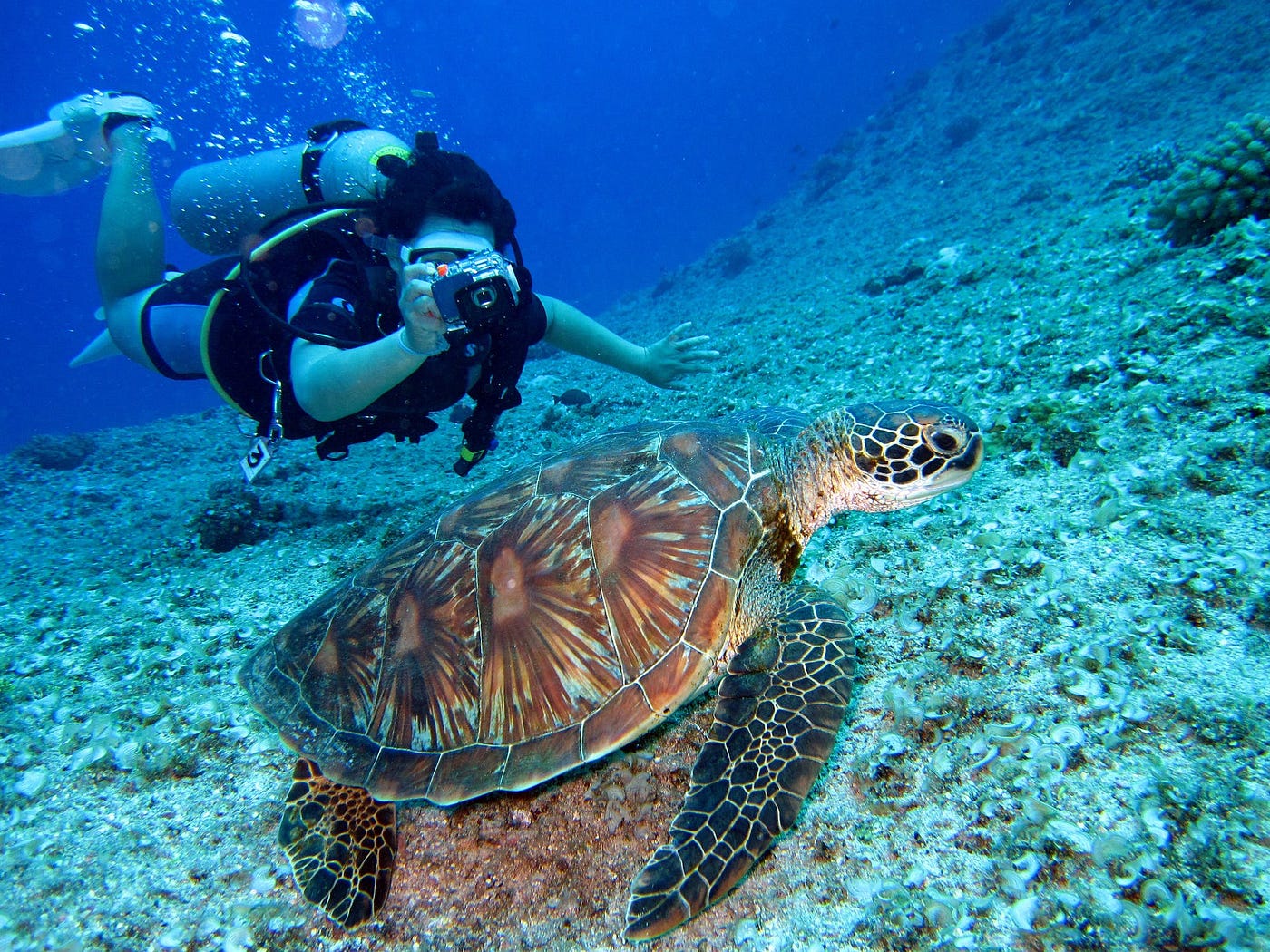Are you ready to explore the breathtaking beauty of the underwater world? Scuba diving is an exciting and thrilling adventure that allows you to see and experience things that you never thought were possible.
But if you're new to the sport, it's natural to feel a little nervous or unsure of what to expect. That's why we've created this beginner's guide to scuba diving.
In the following article, we'll cover everything you need to know to get started, including the gear you'll need, the training you'll receive, and the safety measures you should take.
So let's dive in (pun intended)!
What is Scuba Diving?
Scuba diving is a type of diving that uses self-contained underwater breathing apparatus (SCUBA) to allow divers to stay underwater for extended periods of time. The word "scuba" is an acronym for self-contained underwater breathing apparatus.
Unlike snorkeling, which involves floating on the surface and looking down into the water, scuba diving allows you to descend to deeper depths and explore the underwater world up close.
You'll be able to see a variety of marine life, from colorful fish and coral to shipwrecks and sunken treasure.
What Do You Need to Get Started in Scuba Diving?
One of the great things about scuba diving is that it doesn't require a lot of gear to get started. However, there are a few essential items that you'll need in order to safely participate in the sport.
Scuba diving certification
Before you can start diving, you'll need to obtain a scuba diving certification. This involves taking a course from a certified instructor that teaches you the basic skills and knowledge you need to dive safely.
Most scuba diving certification courses take a few days to complete and include both classroom and pool sessions.
Dive gear
In addition to your scuba diving certification, you'll also need a few pieces of specialized gear to dive safely.
This includes a diving regulator (which allows you to breathe from your scuba tank), a diving mask (which allows you to see underwater), fins (which help you swim more efficiently), and a wet suit or dry suit (which helps you stay warm in cold water).
Dive computer
A dive computer is an essential piece of equipment for scuba diving. It helps you keep track of your dive time and depth, as well as your air supply.
It also helps you avoid decompression sickness, which can occur if you ascend too quickly from a deep dive.
Dive log
A dive log is a record of all of your scuba dives. It's important to keep a log of your dives so that you can track your progress and experience level.
It's also a good idea to bring your dive log with you on every dive so that your instructor or dive leader knows your skill level.
Dive insurance
Dive insurance is important to have in case of any unexpected accidents or injuries while diving. It can cover everything from medical expenses to lost dive gear.
Scuba Diving Training and Certification
As mentioned earlier, before you can start diving, you'll need to obtain a scuba diving certification. There are several different agencies that offer scuba diving certification courses, including PADI, NAUI, and SSI.
Most scuba diving certification courses consist of three parts
Classroom sessions
In the classroom, you'll learn about the basic principles of scuba diving, including dive planning, dive equipment, and dive safety.
Emergency procedures
In the unlikely event of an emergency, it's important to know what to do. Your scuba diving certification course will teach you basic emergency procedures, such as how to deal with an out-of-air situation or how to signal for help. Make sure you understand and can execute these procedures if needed.
Get dive insurance
As mentioned earlier, dive insurance can help protect you in case of any accidents or injuries while diving. It's a good idea to get coverage before you start diving.
Respect the marine environment
As a scuba diver, it's your responsibility to protect the underwater world. Follow the "leave no trace" principle and avoid touching or disturbing marine life and their habitats.
Keep your skills current
As with any activity, it's important to keep your skills current in order to dive safely. Consider taking additional diving courses or participating in divemaster programs to continue learning and improving your skills.
Conclusion
Scuba diving is an exciting and rewarding adventure that allows you to explore the breathtaking beauty of the underwater world. With the right training and gear, you can safely participate in this thrilling sport.
We hope this beginner's guide to scuba diving has given you a better understanding of what to expect and how to get started. Remember to always follow safety guidelines and dive within your limits. With a little bit of practice and experience, you'll be well on your way to discovering the amazing wonders of the underwater world.



